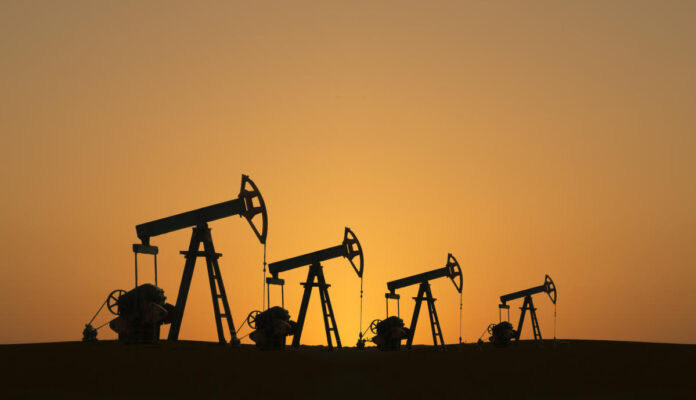RIYADH: Brent crude passed $85 a barrel and WTI was headed for an eighth consecutive weekly advance as Saudi Oil Minister Abdulaziz bin Salman Al Saud insisted OPEC+ will stick to its plan to increase output at a steady pace in the coming months.
Brent gained 1 percent to $84.82 a barrel at 3:33 p.m. Riyadh time, headed for a 3 percent weekly gain. They earlier touched $85.10, a three-year high. West Texas Intermediate (WTI) also gained 1 percent, to $82.12, 3.5 percent higher on the week.
OPEC+, the alliance of OPEC and non-OPEC producers led by Saudi Arabia and Russia, would be adding 400,000 barrels per day (bpd) in November, and then again in the following months, the Kingdom’s energy minister told delegates at Russian Energy Week on Thursday.
While the market is tight today, it is set to be return to balance by the end of the year and be in surplus during 2022, according to OPEC forecasts.
The benefits of the approach OPEC+ has taken can be seen in the steady increase in the price of oil this year compared with the wild price swings in other markets, he said.
“What we see in the oil market today is an incremental (price) increase of 29 percent, vis-a-vis 500 percent increases in (natural) gas prices, 300 percent increases in coal prices, 200 percent increases in NGLs (natural gas liquids) …,” he said. OPEC+ has done a “remarkable” job acting as “so-called regulator of the oil market.”
Such has been the success of OPEC+, other commodity markets should adopt similar arrangements, he said.
“Gas markets, coal markets, and other energy sources need to be regulated, people need to copy and paste what OPEC has done and what OPEC+ has achieved,” the Saudi minister added.
Saudi Arabia has proposed that Russia consider the possibility of cooperating in the natural gas market, Russian Deputy Prime Minister Alexander Novak said on Thursday, according to TASS news agency.
Oil prices were also supported by a bullish demand forecast from the International Energy Agency on Thursday, which predicted the energy crunch will boost crude demand by 500,000 barrels per day.
That would result in a supply gap of around 700,000 bpd through the end of this year, until the OPEC+ adds more supply as planned in January.
The structure of Brent crude oil futures is showing a “scarcity premium” that has widened to the most since 2013 this week, a sign of the tight market underpinning oil’s rally amid a wider energy crunch as economies recover from the COVID-19 pandemic.
The premium of the immediate Brent crude contract to the December 2022 price stood at $8.13 a barrel on Friday after reaching $8.30 on Monday. The value on Monday was the highest since 2013, according to Refinitiv Eikon data.
Also at Russian Energy Week, Putin said it was “quite possible” oil prices could climb above $100 as energy demand rises.
He also used an interview at the forum to deny Russia is using gas as a geopolitical weapon and instead is ready to help Europe with additional energy supplies.

